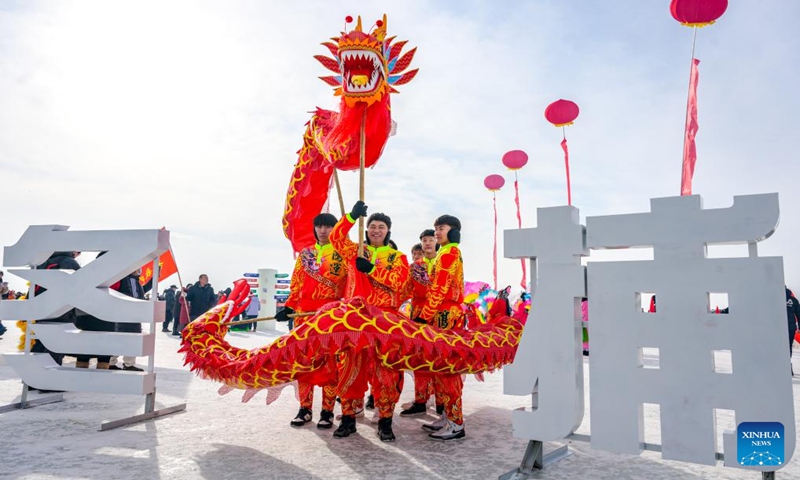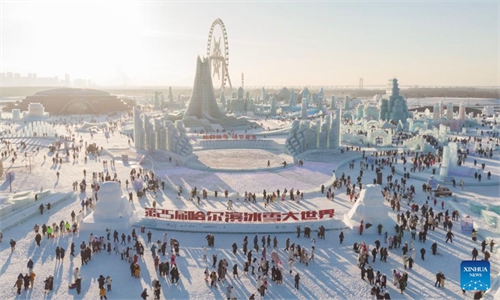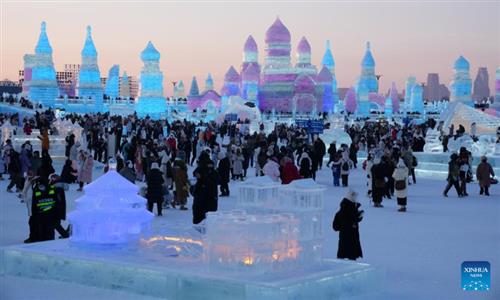
Actors perform dragon dance at the opening ceremony of a promotion event for tourism and winter fishing on the Dalinor Lake in Chifeng City, north China's Inner Mongolia Autonomous Region, Jan. 13, 2024. A promotion event for tourism and winter fishing kicked off at the Dalinor Lake of Hexigten Banner in Chifeng. Featuring fishing, performance and other activities, this event attracted many tourists. (Xinhua/Peng Yuan)
The ongoing 14th National Winter Games, which are being held in North China's Inner Mongolia Autonomous Region, have given a big boost to the development of the local winter sports sector, as shown by remarkable tourism and spending levels during the Spring Festival holidays. The event runs from February 17 to Tuesday.
Experts noted that large-scale sports events can boost local cultural and tourism development, as well as stimulating consumption.
Yang Xuedong, director of the Economic Department of the State General Administration of Sport (GAS), said that four game areas of the 14th National Winter Games - Hulun Buir, Hohhot, Ulanqab and Chifeng - had 13.15 million visitors during the Spring Festival holidays, and spending in the cultural, sports and tourism sectors reached 10.12 billion yuan ($1.42 billion), the Xinhua News Agency reported.
During the holidays, Hulun Buir, the main game area, had 1.67 million visitors, which spurred 1.14 billion yuan in related consumption and boosted the local ice-snow economy's development, said Yang.
Behind the bustling travel and consumption lie detailed plans and arrangements by the government and the GAS.
In December, the GAS and relevant departments launched special tourism campaigns targeting certain winter sports, as well as promoting ice-snow consumption activities across the country.
As the 14th National Winter Games partly coincided with the Spring Festival holidays and well-prepared sports-related tourism products, the consumption potential was fully released, Jiang Yiyi, deputy head of the School of Leisure Sports and Tourism at Beijing Sport University, told the Global Times on Sunday, noting that sports events can generate large-scale economic effects.
Major sports events held in 2023 included the 31st Summer World University Games in Chengdu, Southwest China's Sichuan Province, the 19th Asian Games in Hangzhou, East China's Zhejiang Province, and China's first Student (Youth) Game in South China's Guangxi Zhuang Autonomous Region. Altogether, these events attracted about 220 million tourists with more than 100 billion yuan in spending, according to the GAS.
Yang noted that the GAS will support efforts to foster the sports event economy in 2024, and further play an active role in lifting consumption and the economics of event venues.
Global Times



